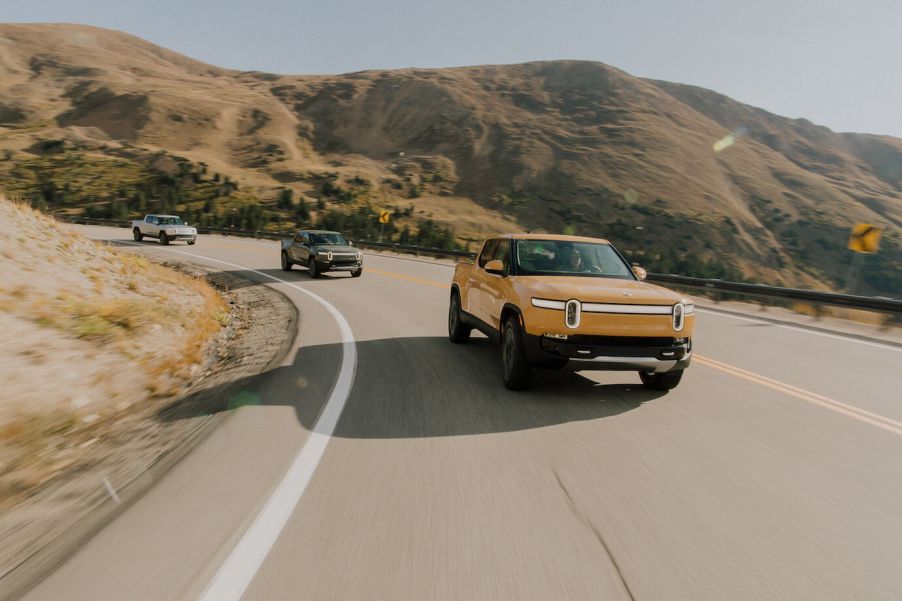
Rivian Loses $33,000 on Every Vehicle Sold, Spends Billions Staying Afloat
It’s no secret that starting a car company in the modern climate is not an easy task. Though a handful of electric vehicle startups have come and gone, a couple of holdouts are doing their best to follow in the footsteps of Tesla. Rivian, for example, is on a quest to provide the ultimate EV truck and SUV offerings. It’s burning billions trying to make that a reality, though.
Rivian is losing over a billion dollars per quarter and $33,000 per vehicle sold

According to The Wall Street Journal, Rivian is currently losing about $33,000 per vehicle sold. Being that that’s enough money to buy a new Camry, it sounds pretty extreme. For Rivian, though, that’s actually a small win.
Thanks to supply chain issues, the company was losing much more than that per vehicle this time last year. According to CNBC, Rivian lost $412 million through Q2 in 2023. That’s a substantial improvement from the $700 million loss in Q2 of 2022. Want to really cringe? In 2022, it lost over $1.5 Billion in Q1 of 2022.
Tech Crunch reports that Rivian has assembled over 16,000 vehicles for Q3, with 15,564 customer deliveries. That’s a 23% increase over Q2. Rivian says it expects to produce 52,000 vehicles total in 2023.
So, ultimately, the $33,000 loss per vehicle is a phenomenal headline, but it doesn’t tell the whole story. The company’s losses are getting narrower and narrower with each quarter. The impressive popularity of the R1S, its SUV, is undoubtedly helping in its growth.
Is Rivian going to last?

It’s important to keep big business and startup perspectives in this matter. For example, Macro Trends shows that Tesla operated at a loss from its inception until the year 2019. In 2014, Tesla reported a $2.241 Billion loss.
Wall Street Journal reports that Rivian’s IPO launch in 2021 was one of the largest in American history, raising over $12 Billion. So, while the company has burned through a hefty portion of its $18 Billion nest egg, it still has some running room.
Overall, there’s no indication that Rivian is going anywhere anytime soon. With the seeming failure of Lordstown Motors and other EV startups struggling to stay afloat, it’s is actually doing quite well for itself. If the company’s steady improvement in sales and cost-effectiveness in producing vehicles continue, it won’t be long until the EV up and comer is running in the black.



